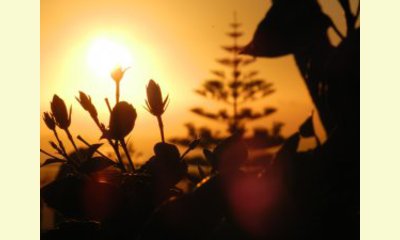|
|
Euro-med youth exchanges: Culture of Olive Trees . . . Culture of Peace
un articulo por Euromed Youth Exchange
Video: Culture of Olive Trees . . . Culture of Peace
“Culture is something that remains in our minds after we forget everything“. Culture of Olive Trees . . . Culture of Peace represented an opportunity for creating new bridges among the Mediterranean European and North African countries, cultures, traditions and perspectives of living.

click on photo to enlarge
From 17th to the 27th December 2011 the Association des Amis de la Maison de Jeunes Sahloul (AAMJ Sahloul) hosted Italian, German, French, Tunisian, Algerian and Egyptian participants for a Euro-Med Youth Exchange (Action 1) in Hammam-Sousse.
Tunisia, Algeria, Egypt, Italy, France share a unique background about the past and current culture and use of olives. Olive oil has historically been used in several domains: nutrition, medicines, healing and also for religious and defending purposes.
The whole Mediterranean area is also known as an olive region due to its geographical and climatic unique characteristics. The culture of olive oil and trees carries a meaningful message of unity especially when considering a transnational perspective among different cultures, religions and ways of live. Historically, olive oil was considered as a privileged and holy element suitable for heroes (according to Greeks and Romans): at present, the role of olive oil and the culture of olive trees have been changed and evolved but the importance and the peaceful message of its purpose still remains the same among different populations.
The project Culture of Olive Trees . . . Culture of Peace turned these perspectives of unity and peace into reality, by encouraging European and North African youth while working, living and sharing their ways of life together in a serene and productive environment.
Participants enriched themselves by living in Tunisia, studying the theme of peace related to nature and connected to the culture of olive trees. All the events organized during the project (conferences, different workshops, study groups, cultural visits and surprises) introduced all participants to the Tunisian culture, its social services, its political and social features while pointing out the theme of revolution as a source of new bridge and understanding between Europe and North-Africa: revolution must be accompanied at the same time with the concept of evolution among society.
(Click here for a French version of this article)
|








|
DISCUSSION
Pregunta(s) relacionada(s) al artículo :
Is there a renewed movement of solidarity by the new generation? ,
* * * * *
Comentario más reciente:
from Javier Collado Ruano, Director of Edition at Global Education Magazine, on the occasion of the International Day of Solidarity.
Solidarity is a trans-dimensional phenomenon that goes beyond the ontological essence of human nature. In fact, when we analyze the connections between the microcosm and the macrocosm, we perceive that human beings are not involved in chaos and arbitrariness, but belongs to the large network of interdependencies, complementarities and reciprocities that constitute life. The emergence of life on Earth, around 3,8 billion years ago, was a complex process of exceptional natural phenomena, inherent in all living systems. A process which is expressed through unlimited creativity: mutation, gene exchange, and symbiosis. From a cosmo-biological perspective, we can understand a new conceptual dimension of life, where all living beings share same basis of genetic code: the twenty amino-acids and four phosphatic bases. In fact, the diversity of living beings is caused by the combination of this cosmo-bio-genetic basis.
This trans-dimensional perspective has a deep ecological and spiritual sense for our worldview because the human evolutionary adventure is the latest stage of life on Earth. The modern human being is a vertebrate animal, mammal, belonging to the primates, which emerged 200,000 years ago. In recent centuries he has imposed its anthropocentric, industrial and capitalist vision to the detriment of Pachamama (and Indigenous goddess known as earth mother). We consume around 120% of the natural resources that Earth Mother regenerats annually. Our consumer behavior is immersed in a fatalistic dynamic with a destiny to climate change (deforestation, loss of biodiversity, ozone, etc.), and our own self-destruction as a species.
There is an urgent need to get beyond the cognitive fallacy that the mental structures of social Darwinism and capitalist postulates of the 19th century have historically constituted, because they only understand natural and social systems as warmongers and competitive processes whereby species diverge from each other. . ... continuación.

|
|









